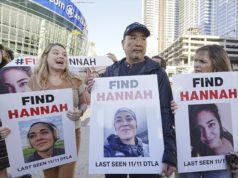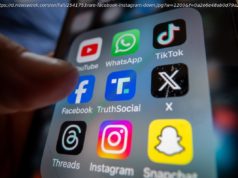Four months after a Russian former spy and his daughter were left critically ill by a nerve agent in an English town, two Britons were sickened by the same toxin.
LONDON — After a Russian former spy, Sergei V. Skripal, and his daughter, Yulia, were poisoned in the English city of Salisbury four months ago, a diplomatic crisis broke out between Moscow and London.
Britain blamed Russia, saying Moscow had poisoned a former agent on its soil just as it had attacked Alexander V. Litvinenko, a former K. G. B. officer, in 2006. Western allies lined up to support London’s complaints, but the Kremlin vehemently denied the accusations, echoing the rejection of guilt it gave in the Litvinenko case.
The Skripal case seemed to quieten down after the victims gained consciousness. But now two British citizens are critically ill after being exposed to Novichok, the same nerve agent that was used to poison the Skripals in March.
[ Read more coverage about the theories on both poisonings.]
Here’s a look at how the two poisoning cases have unfolded.
Mr. Skripal, 66, a former intelligence official who came to Britain in 2010 after a spy exchange with Russia, and his daughter, Yulia, 33, were found unconscious on a bench in Salisbury, a small city in southern England, on March 4.
The authorities traced the Skripals’ movements from a pub and a restaurant to a supermarket and finally to a bench where they were found in a catatonic state. The route was examined for signs of a lethal chemical substance, but investigators needed to have looked no further than the door handle of Mr. Skripal’s home, where the police believe an assassin smeared a nerve agent identified as Novichok.
Before the attack in Salisbury, there had never been any signs of the use of Novichok, a nerve agent thought to be more lethal than sarin or VX, the substance used in 2017 to kill Kim Jong-nam, the half brother of North Korea’s leader, Kim Jong-un.
Exposure to Novichok, either by inhalation or through the skin, leads to muscle spasms, secretion of fluid into the lungs and organ failure. Other symptoms include foaming at the mouth, which was the case for the couple who were found on Saturday in a home in Amesbury, England. They had visited nearby Salisbury.
Experts said that if a victim had already died from Novichok exposure, the police could easily mistake the cause of death for a simple heart attack.
The doctors who treated the Skripals had expressed concern about how far the substance could have spread .
Detective Sgt. Nick Bailey, who was exposed to the nerve agent while helping the Skripals, was in the hospital for two and a half weeks.
Prime Minister Theresa May of Britain was quick to blame Russia for the attack on the Skripals .
“It is now clear that Mr. Skripal and his daughter were poisoned with a military-grade nerve agent of a type developed by Russia,” Mrs. May said in an address to Parliament in March.
“The government has concluded that it is highly likely that Russia was responsible for the act,” she added.
A few days later, Boris Johnson, the British foreign secretary, implicated President Vladimir V. Putin in the attack, saying that it was “overwhelmingly likely” that the Russian leader had personally ordered the poisoning.
Britain expelled 23 Russian diplomats and announced that it would review the visas of about 700 Russians in the country. In retaliation, Moscow sent away 23 British envoys.
Supporting London, Washington ordered 60 Russians to leave the United States. Russia responded by announcing the expulsion of 60 American officials, while continuing to deny any involvement in the poisoning.
Canada and several European Union member states — including France, Germany, Italy and Poland — joined the actions by ordering Russians to leave.
The worsening confrontation prompted António Guterres, the secretary general of the United Nations, to say that the crisis recalled the Cold War.
To the surprise of many — including that of their doctors — Sergei and Yulia Skripal woke up in April .
Ms. Skripal was released from the hospital five weeks after she and her father were put into induced comas following the poisoning. Mr. Skripal left the hospital about a month later .
Attempting to reassure residents, the authorities said that only a small amount of the liquid nerve agent was used in the attack and that no trace elements would be left after the exhaustive decontamination.
Two more people, a man and a woman, were said to have been critically sickened by Novichok after they fell ill on Saturday. The two, identified locally as Charlie Rowley, 45, and Dawn Sturgess, 44, had visited the Queen Elizabeth Gardens in Salisbury, a site close to the bench where the Skripals were found.
Despite the use of Novichok, it remains unclear whether the latest attack is linked to the Skripal poisoning. Several theories have been put forward to try to explain another exposure to the nerve agent, despite the vigorous efforts to decontaminate the area.
The latest episode could be an accidental consequence of the attack on the Skripals, or it could be a separate assault, experts say, though it was unclear why the recent victims would have been targeted.
Russia categorically denies involvement in either case.






